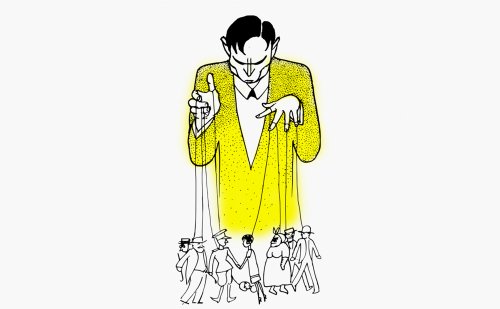he ruling class, having achieved complete monopoly over power, gradually expands and increases its needs. This diminishes its ability to adequately respond to the depletion of public resources, the decline in economic activity, the impoverishment and degradation of the population, and the loss of power. In such conditions, attempts to demonstrate strength and prosperity to external rivals and their own population, along with bribing followers, may postpone but cannot prevent the collapse of the regime and the change of power.
Among various viewpoints, one of the most adequate concepts for understanding the functioning and development of ruling groups seems to be the models based on observations of the change of ruling factions in medieval Egypt.
This refers to a little-known author in local scholarship, Ibn Khaldun (Wali ad-Din ‘Abd al-Rahman Ibn Muhammad Ibn Khaldun, 1332–1406).
The main intellectual achievement of Ibn Khaldun is his book “Al-Muqaddimah”. It offers a fully scientific socio-dynamic explanation of the cycles of dynastic changes, which is based on the analysis of the complex interaction of political, military, moral-psychological, economic, geographical, climatic, and other factors.
The perspective of a medieval Egyptian turns out to be very insightful, and his approach to accounting for multiple causal relationships and cyclical patterns appears thoroughly modern and instructive.
The key concept in Ibn Khaldun’s theory is ‘asabiyyah, collective solidarity. ‘Asabiyyah can be understood as militant cohesion, and the term will be used without translation hereafter.
The highest level of ‘asabiyyah, according to Ibn Khaldun, is found among the Bedouins, who live in harsh and dangerous conditions. In a group that comes to power, ‘asabiyyah begins to decline over 4–5 generations. As a result, the state collapses, and a new dynasty with a high level of ‘asabiyyah takes power.
The reasons for the decline of ‘asabiyyah are as follows
The leader of the group that has seized power strives to monopolize the glory of victory and, accordingly, the right to rule. He conducts a harsh struggle against those who were recently his equals or near equals. Followers are recruited from the lower classes to prevent excessive ambitions. The system of power becomes hierarchical. The previous alliance with high ‘asabiyyah is replaced by mercenarism, which lacks selflessness and cohesion.
Another reason lies in the natural tendency of rulers toward luxury (in modern terms, prestigious consumption). Luxury asserts status and power. Since lower-level officials take their rulers as role models, and rulers cannot allow their subordinates to surpass them in luxury, the pursuit of prestigious consumption quickly spreads both top-down and bottom-up.
The habit of a luxurious life, particularly with generational change, the habit of a luxurious life naturally leads to a shift in motivation toward maintaining at all costs the achieved level and quality of life. The desire for comfort "softens" souls and lowers the level of ‘asabiyyah. Furthermore, since the luxury and comfort of rulers directly depend on retaining power, the desire to hold onto it at any cost becomes predominant. Consequently, not only the interests of ordinary citizens but even the stability of society and the state itself are subordinated to these motives.
The decline of ‘asabiyyah is a significant, but not the sole, reason for the decay of power and the state. Ibn Khaldun also incorporates economic, climatic, and demographic factors into the complex network of causes.
As long as the income from rent allocated to a single member of the elite exceeds the minimally acceptable level (for a "decent existence" and reproduction of the ruling class), the state and the elites live in harmony. However, if the number of elite members grows to such an extent that their per capita income falls below this minimum, the elite becomes dissatisfied and begins to draw additional resources from the part of the treasury intended for administrative and military expenses.
The growth of prestigious consumption by the elite leads to a situation where even in prosperous years, the surplus product is insufficient to cover the needs of the growing and increasingly luxurious ruling class.
Consequences of resource depletion Ibn Khaldun also notes that the relentless growth of the number and appetites of the elite leads to the depletion of the treasury, an increase in unjust levies, a further slowdown of economic activity, weakening of the army, and rebellions.
The size and appetites of the elite and its followers also lead to a reduction in food reserves, which in lean years causes mass starvation, plague, and depopulation. This, in turn, further weakens the economy, the army’s strength, and the population’s loyalty.
In such conditions, the decline in the actual power of the ruling dynasty does not lead to a reduction in the size or appetites of the elite and its followers.
This is because, sensing the danger of losing power, the ruling dynasty takes measures aimed at strengthening its glory and significance in the eyes of the population and other states, as well as boosting its authority among its followers.
How does this manifest? A weak but power-retaining ruling group:
- engages in monumental construction: the ruler spends his energy on building monumental structures, large cities, and tall buildings;
- seeks to enhance the country’s diplomatic prestige: presents generous gifts to embassies from other states and tribes;
- lavishly rewards its followers;
- demonstrates strength and prosperity: he organizes reviews of his troops, pays them well, and disburses their monthly allowances in full, which is reflected in the luxury of their clothing and the brilliance of their weapons, impressing friendly dynasties and intimidating hostile ones.
Such measures, on the one hand, indeed legitimize the dynasty and extend its rule for some time. On the other hand, being extremely costly, they exacerbate the underlying crisis and contribute to a deeper and more destructive collapse of power in the future.
© translation t.me/sceptic_club






















